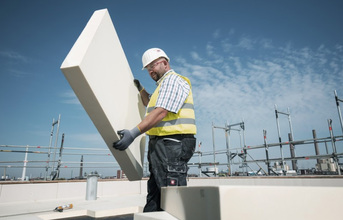
Covestro is consistently pursuing its path to a circular economy and is now offering customers a climate-neutral MDI (methylene diphenyl diisocyanate). It's climate-neutral from the cradle to the factory gate of Covestro, thanks to the use of alternative raw materials - based on plant waste - that are allocated to the products with the help of certified mass balancing according to ISCC PLUS. The new MDI grades can be used in numerous construction, cold chain and automotive sectors.
According to a common calculation model1, on balance, no CO2 emissions are generated in the aforementioned part of the value-added cycle. The climate-neutral MDI and its precursors are manufactured at the ISCC PLUS-certified Covestro sites in Krefeld-Uerdingen, Antwerp and Shanghai.
"With the launch of our climate-neutral MDI, we are now further expanding our portfolio of climate-neutral products," said Sucheta Govil, Chief Commercial Officer, Covestro. "I am pleased that this will enable us to even better support our customers in large parts of the world in meeting their own sustainability goals and transitioning to a circular economy." Only last December, the company announced the launch of its climate neutral polycarbonate.
Hermann-Josef Dörholt, Global Head of the Performance Materials Business Entity, added, "Climate-neutral products are an important factor in achieving our sustainability goals. Our climate neutral MDI has another major advantage: it is a drop-in solution - so our customers can use it immediately in their production without any changeover and without compromising on quality."
Even more sustainable building insulation
This is the case, for example, in building insulation. MDI is an indispensable raw material for producing polyurethane (PU) insulation boards and sandwich panels, among other products. These have proven their value for many years as highly efficient elements in the thermal insulation of buildings. The heating or cooling requirements of buildings can be reduced by up to 70 per cent through PU insulation. This saves CO2 emissions and is good for residents' wallets. Because PU insulation elements can therefore be designed thinner to achieve good insulation performance already, they save resources and make more usable space accessible than other insulation materials.
In addition to the good thermal insulation properties of PU insulating materials, Covestro's climate-neutral MDI now provides a further sustainability benefit: By practically avoiding emissions during its production, it even helps to reduce embodied carbon over the life cycle of a building. The use of PU insulating materials made from it in new buildings and the renovation of older real estate can thus make an essential contribution to the responsible use of primary resources and significantly reduce CO2 emissions.
